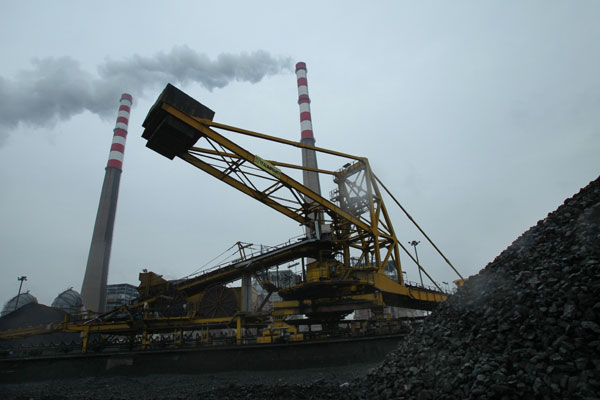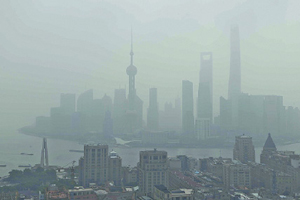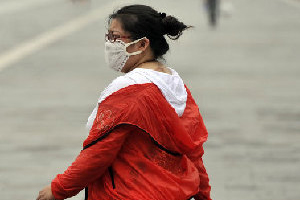 |
|
A coal-fired power plant in Nantong, Jiangsu province. According to a midterm assessment in 2013, the nation fell behind in some of its pollution targets over the past three years. CHINA DAILY |
The document, released by the State Council's Legislative Affairs Office, also requires governments above the county level to account for the prevention and control of air pollution in their economic and social development plans by increasing fiscal input.
The draft also mandates assessments of government performance, which will be published for public viewing. If governments fail to abide by the draft or do not meet emissions targets, officials must create and enact rectification measures.
The draft will be available for public opinion until Oct 8. The Air Pollution Prevention and Control Law took effect on Sept 1, 2000, but has not been revised since then.
Ma Zhong, head of Renmin University of China's School of Environment and Natural Resources, said the current law, which does not have specific rules on air pollution violations, must be amended.
The draft would also force provincial governments to issue warnings in the likelihood of smog and governments above the county level to create emergency responses to cope with smoggy days, including restricting traffic, closing businesses and canceling outdoor physical education classes for students.
Ma said two important aspects of the revision are the limits on coal consumption and automobile traffic.
According to the draft, the government will control how much coal it uses and reduce the amount of air pollution from the production and consumption of coal. Inferior quality coals, such as coal with high ash and sulfur content, must be processed with washing equipment before they are used. It also imposes a permit system on factories for the emission of major air pollutants.
Better public transportation and the use of energy-saving and environmentally friendly vehicles will be encouraged, and the number of cars on the road will be controlled. Governments above the county level can mark out areas in which heavy polluting vehicles are forbidden.
The draft also increases penalties from 10,000 yuan to 50,000 yuan ($1,600 to $8,200) on illegal emissions activities, 20,000 yuan to 100,000 yuan on the improper disposal of construction waste and 10,000 yuan to 50,000 yuan for the production of noxious gas by outdoor burning.
The fines on illegal outdoor barbecues can reach as high as 2,000 yuan ($330).
Ma said he is pessimistic about the new fines in the draft because some penalties are not enough to have an effect on companies that violate the law. What's worse, he said, there are caps on the penalties.
"It gives a clear signal that you can violate the law at a certain cost and in the majority of the cases the cost of pollution is less than their benefits," he said, adding that the penalty ceiling contradicts the Environment Protection Law revised in April.
zhang_yi@chinadaily.com.cn
 |
 |
| Number of visitors to China drops? | Beijing considers 'air corridors' to reduce pollution |
